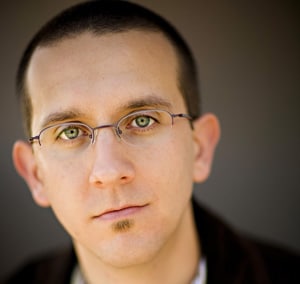
Heath Haussamen
It’s no wonder that many average Americans stop paying attention to politics when a donor can spend $1 million anonymously in a presidential race and almost get away with it.
The story of a company called W Spann LLC being created in March, giving $1 million to a Mitt Romney-supporting political action committee in April and dissolving in July is outrageous. The only name listed on the corporation’s paperwork was its attorney, and she refused to name her client.
Fortunately, the national media and groups on the left cried foul. You can’t give $1 million in secret without disclosing your identity, can you?
In this case, the answer is no. After two groups filed a complaint with the FEC, a longtime Romney friend, Edward Conrad, came forward, saying he was the man who formed and funded the corporation.
Romney was quick to declare the situation over. “I think the whole controversy with regards to his contribution certainly sort of disappears when he came forward and said he was the contributor,” the GOP presidential candidate said.
The attempted anonymous donation is outrageous, and so is Romney’s comment.
The situation raises all sorts of questions. Did Conrad violate federal law? And, perhaps more importantly, are others who are giving large sums of money also trying to make it difficult to learn their identities? Mr. Romney, why don’t you seem to be concerned about these issues?
Difficult to figure out who’s funding who
Of course, we all know that there are many wealthy political donors who try to make it hard to discover their identities. It’s incredibly difficult to figure out who’s funding who in Washington, despite the efforts of groups like the Center for Responsive Politics, which publishes OpenSecrets.org.
Stories about anonymous donors giving $1 million are discouraging to people who struggle to find the motivation to even vote, let alone scrape together $100 to give to their preferred candidates. The reality is that money is sometimes passed around and around before it’s ever spent to support a candidate, so even if there’s a trail of named donors in finance reports, it’s difficult to track where people are making donations and how those donations end up being spent.
The public’s dislike of Washington is largely due to a sense that Washington doesn’t serve most people; it only serves the wealthy. Romney’s declaration that the Conrad situation “disappears when he came forward and said he was the contributor” misses the point, but is it any surprise that the wealthy Romney would miss the point?
It’s not like Barack Obama has done any better. He claimed during his 2008 campaign that he wasn’t taking a dime from lobbyists, but the reality was that his fundraising team included dozens of members of law firms that were paid more than $100 million combined to lobby the federal government in 2007.
And, according to the USA Today analysis that made the situation public, 31 of the 38 lawyers were law firm partners who “typically receive a share of their firm’s lobbying fees.”
Don’t take money from lobbyists. But let the lobbyists raise money for you.
Obama pledged a new level of transparency and reduced special-interest influence in the federal government; it’s a promise he hasn’t delivered. Mitt Romney, currently the GOP frontrunner to challenge Obama next year, doesn’t seem to even understand the need for campaign finance transparency.
Where do we go from here?
Politics is full of promises to make government better serve people and be less beholden to special interests, but this nation’s people have a strong sense that the opposite happens regardless of which political party controls things. It makes people feel like their voices and their votes don’t matter.
One of the first steps toward convincing more voters to participate in the political process would be mandating full transparency in campaign financing. Donations and expenditures should be put online in real-time or close to it, and the system should be simplified so there are fewer loopholes. Washington needs to aggressively close loopholes as they are discovered and go after those who break the rules.
Of course, changing attitudes about transparency in Washington would require a reduction in the influence of the wealthy special interests that don’t want transparency. So where do we go from here?